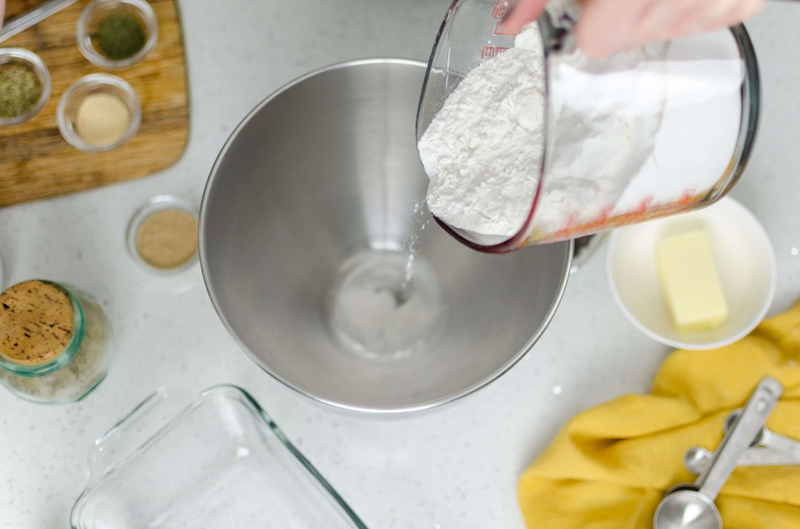You probably know that fiber is essential for your health, but did you know that our bodies don’t actually digest this nutrient? Humans lack the enzymes needed to break down fiber. So how does it play a role in our nutrition, and why is it so beneficial for our health?
Many desserts and baked goods are high in refined carbs and lacking in fiber. Read on for all the reasons we love to feature fiber in our baking mixes!
1. Feeds beneficial gut bacteria
Most nutrients that you eat (like protein, carbs, and fats) are absorbed by your bloodstream before they get to your large intestine, which means they don’t provide much food for your “good” gut bacteria.
But because fiber isn’t digested by your cells, it provides prebiotic food for your gut flora. Unlike us, these do have the enzymes to break it down. Supporting a healthy gut flora can help your body process and get energy from the foods you eat, clear toxins, fight against disease, and boost your mood.
2. Good for digestion
Dietary fiber might be best known for its ability to help promote regularity. That’s because it can increase the weight and bulk of your stool, making it easier to pass throughout your system. Soluble fibers* like psyllium form a gel in your digestive tract that can ease the digestive process right along.
3. Helps regulate blood sugar
One of our favorite things about fiber is its ability to reduce blood sugar spikes after a high-carb meal. Including viscous, soluble fibers in your meals can help decrease the likelihood of harmful glucose spikes that can lead to weight gain and various health issues.

4. Helps reduce appetite
Fiber can soak up water in the intestine, slowing down your absorption of food. Higher-fiber foods tend to be more filling, so you’re likely to consume fewer calories and stay satisfied longer. For this reason, fiber can play a beneficial role in healthy weight management.
5. Other health benefits
In addition to being good for your metabolic goals and healthy weight loss, fiber has other key benefits. Studies have shown that fiber, like psyllium, may help lower cholesterol and blood pressure, strengthen your heart muscles, and lower your risk of heart disease.
When your friendly gut bacteria break down fiber, they also produce nutrients for the body, including short-chain fatty acids that can help nourish your colon, supporting a healthy inflammatory response.
Takeaways
Health experts recommend that you get 28 grams of fiber a day if you’re a woman and 38 if you’re a man. At Scotty’s Everyday, we make sure there’s always good fiber in each of our baking mixes in the form of psyllium husk, chicory inulin, and resistant tapioca starch (which acts as a soluble fiber in your gut). We’re happy to make baking mixes that help support your healthy fiber goals!
*Fiber is classified as either soluble, which can dissolve in water, or insoluble fiber, which cannot. Different types of fiber have different properties.
Sources:
National Library of Medicine, Review article: prebiotics in the gastrointestinal tract
Mayo Clinic, Dietary Fiber: Essential for a healthy diet
National Library of Medicine, Cholesterol-lowering effects of dietary fiber: a meta-analysis
National Library of Medicine, Dietary fiber and energy regulation
National Library of Medicine, Colonic health: fermentation and short chain fatty acids
Harvard Health, Eat more fiber-rich foods to foster heart health


